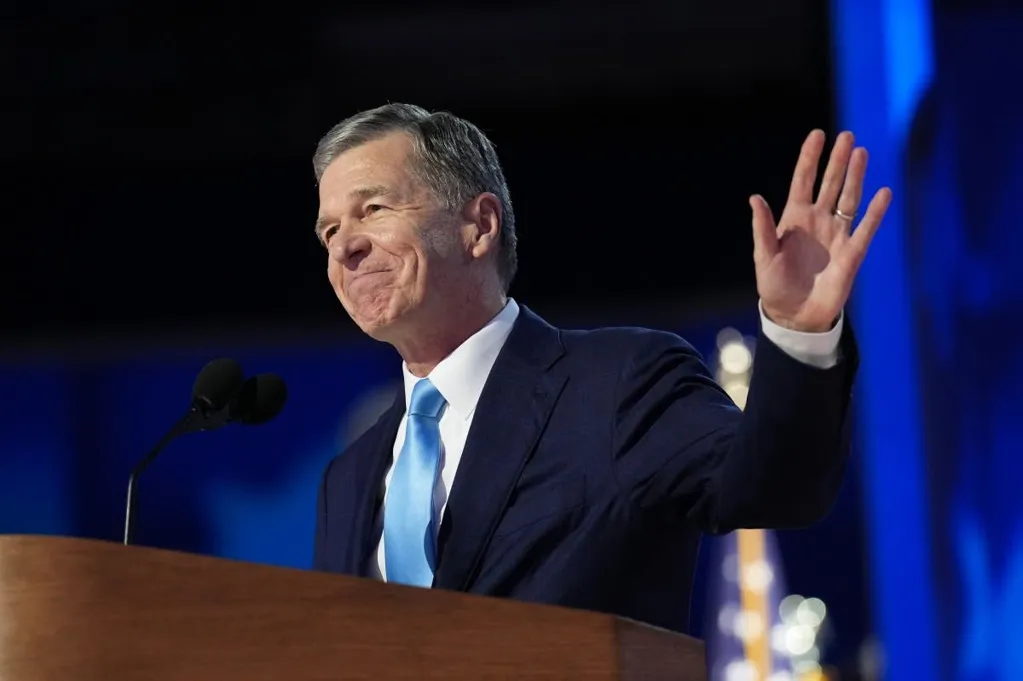Former North Carolina Governor Roy Cooper, a Democrat, outraised Republican Michael Whatley in the Tar Heel State's critical Senate race during the last quarter.
Newsweek reached out to the campaigns of Cooper and Whatley for comment via email.
North Carolina's Senate race is set to be among the most closely watched elections of the 2026 midterms as Democrats hope President Donald Trump's deteriorating approval rating could drive them to victory across the country.
Typically, the party in the White House does lose seats in the midterms, and Cooper, who enjoyed strong approval during his time as governor, was viewed as a top tier candidate. Whatley previously served as the chair of the Republican National Committee and the chair of the North Carolina GOP, so he is also well known on the state's political scene.
Fundraising will be critical for both candidates as they spend the next 13 months making their cases to voters about why they should represent the state in Washington. North Carolina is a closely divided state that has narrowly broken for Republicans in presidential and Senate races in recent years.
Cooper's campaign announced on Monday that he raised $14.5 million in the third quarter of 2025. His campaign touted that as the "largest amount ever raised during a U.S. Senate challenger campaign's first quarter and raised in only 65 days since the campaign launched."
Whatley, meanwhile, raised $5.8 million in the third quarter, reported The Washington Examiner.
Both Cooper and Whatley are viewed as major front-runners in their respective parties' primaries, as neither have drawn high profile challengers. They are running to replace retiring Senator Thom Tillis, a Republican. Tillis announced his retirement after voting against Trump's One Big Beautiful Bill. Tillis had been at odds with the state party for years over his more moderate positions on issues like LGBTQ+ rights and immigration.
Public polling indicates that Cooper holds an advantage over Whatley at this point.
An Emerson College poll from July showed Cooper up six points over Whatley (47 percent v. 41 percent). It surveyed 1,000 registered voters from July 28 to July 30 and had a margin of error of plus or minus three percentage points.
Meanwhile, a Harper poll showed Cooper up four points (46 percent to 42 percent). It surveyed 600 likely voters from September 14 to September 15 and had a margin of error of plus or minus 3.98 percentage points.
A Change Research poll showed Cooper up seven points (48 percent to 41 percent). It surveyed 855 likely voters from September 2 to September 8, 2025 and had a margin of error of plus or minus 3.6 percentage points.
North Carolina has been close in recent elections, but Democrats have struggled to reach a plurality of voters in federal races, even as they perform well in gubernatorial races. In 2020, the state backed Trump over former President Joe Biden by just over a percentage point. In 2024, Trump prevailed over former Vice President Kamala Harris by about three points.
In 2022, Republican Ted Budd, then a member of Congress, defeated Democrat Cheri Beasley by about three points. GOP Senator Thom Tillis narrowly defeated Democrat Cal Cunningham by less than two points in 2020. In 2016, former GOP Senator Richard Burr defeated Democrat Deborah Ross, now a member of Congress, by nearly six percentage points.
At the same time, Democrats have won recent gubernatorial races. Democrat Josh Stein, who succeeded Cooper, won November's gubernatorial race by nearly 15 points after Republican Mark Robinson faced a series of scandals on the campaign trail.
Cooper's campaign manager Jeff Allen wrote in a press release: "Roy Cooper will always put North Carolinians first, and this record-breaking fundraising reflects a massive groundswell of support for our campaign. This will be the most competitive race in the country, and we're putting a people-powered organization together to flip this seat and send Roy Cooper to the Senate to lower costs and deliver for North Carolina families."
Whatley wrote to X last week: "I am incredibly grateful for each and every donation to my campaign. In the Senate, I will be a true America First ally to President Trump and deliver real results for the people of North Carolina."
The Cook Political Report and Sabato's Crystal Ball both classify the North Carolina Senate race as a pure toss-up, a sign of how competitive both parties view the race. North Carolina's primary is set for March 3, 2026, and the general election will be held November 3, 2026.
